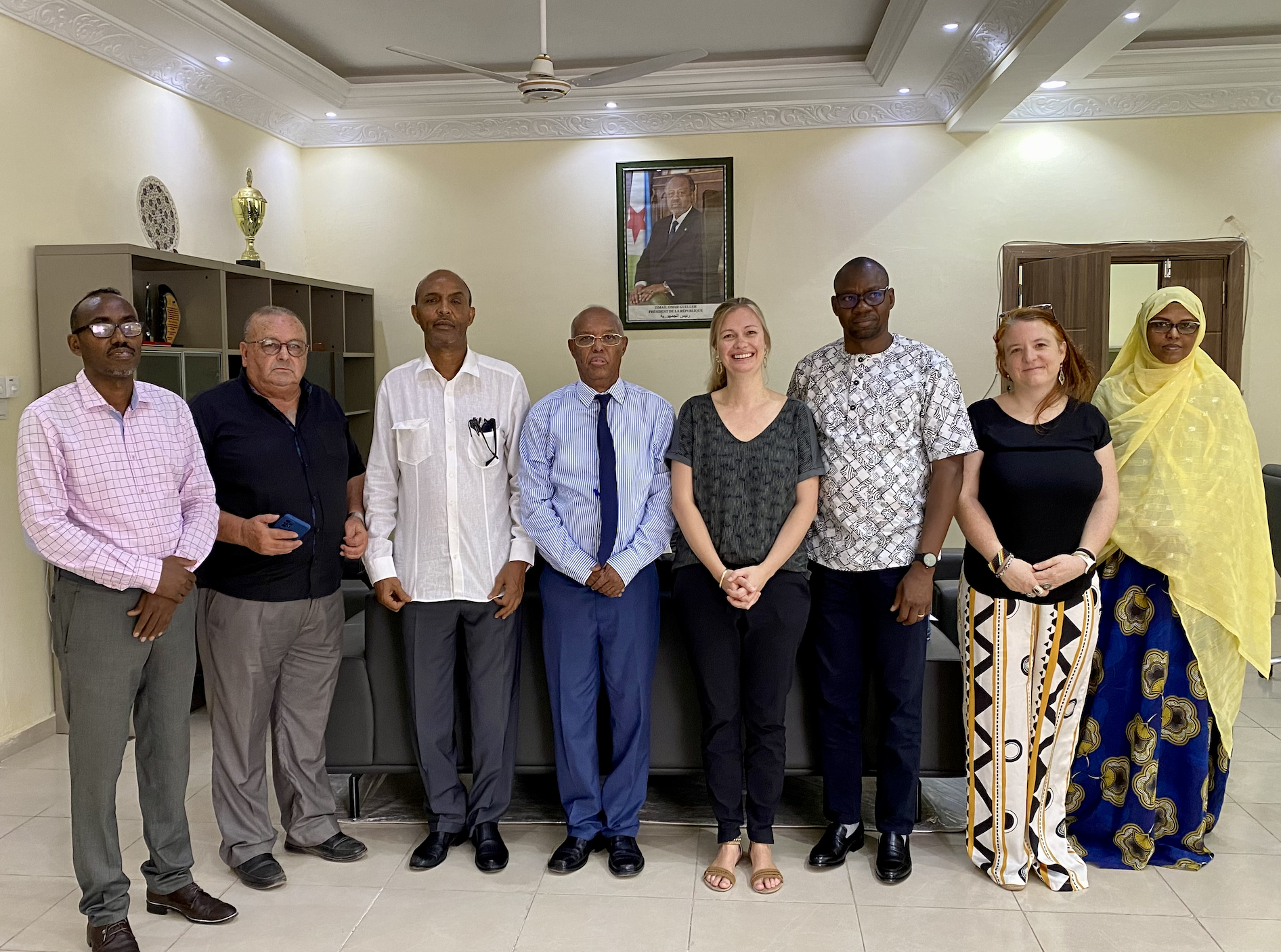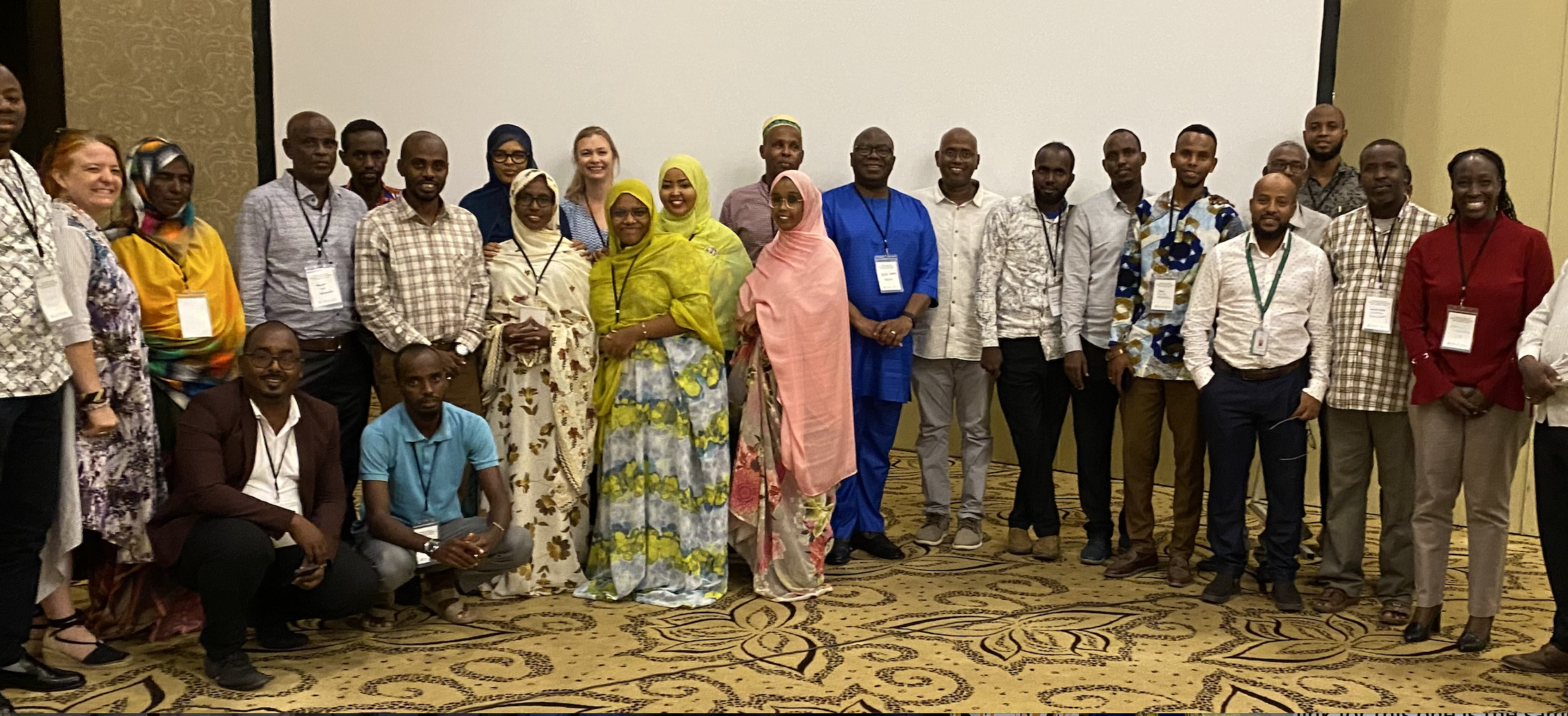Revolutionizing Agriculture, Horticulture, Livestock, and Fisheries in Djibouti Through Digital Technologies
I n the face of mounting climate challenges, Djibouti’s agriculture, horticulture, fisheries, and livestock sectors are undergoing a digital revolution. Thanks to the Africa Adaptation Acceleration Program (AAAP), a partnership between the Global Center on Adaptation (GCA) and the African Development Bank (AfDB), innovative digital technologies are being introduced to boost productivity, improve resilience, and empower local producers.

Digital Solutions to Combat Climate Challenges
Djibouti’s agricultural landscape is fraught with challenges, including shifting weather patterns, water scarcity, and a lack of traditional knowledge among producers transitioning from nomadic to settled farming practices. A feasibility study conducted by the Alliance of Bioversity International and CIAT, in collaboration with GCA and the Djiboutian government, identified digital technologies as a key tool for addressing these issues. The study prioritized seven digital solutions designed to transform Djibouti’s agricultural sector into a more sustainable and resilient system.
Bridging the Knowledge Gap with Digital Extension Services
At the heart of this transformation are digital extension services, introduced by GCA as part of its broader commitment to climate adaptation in Djibouti. These services mark a pivotal moment for the country, being the first of their kind to be implemented here. The goal is to enhance climate resilience while boosting productivity in agriculture, horticulture, fisheries, and livestock.
Digital extension services provide local producers with access to critical, timely advice, helping them respond to climate-related challenges in real time. By leveraging advanced platforms, farmers, herders, and fishermen can receive expert guidance on everything from seed selection and crop management to market access and weather adaptation strategies. The services combine traditional knowledge with modern techniques, ensuring producers receive well-rounded, practical support that is relevant to their local conditions.
Driving Agricultural Transition with Digital Innovation
To effectively reach producers across Djibouti, digital extension services use a variety of communication tools, including Interactive Voice Response (IVR) systems, SMS, mobile apps, and video content. This ensures that vital information is disseminated efficiently, even in remote areas. Given that many producers have limited access to traditional technical assistance, these digital platforms provide a lifeline of knowledge—whether it’s advice on planting schedules, pest control, or disease management.
One of the unique challenges in Djibouti is that many farmers are transitioning from nomadic herding to more settled agricultural lifestyles, leaving them without the generational knowledge required for farming. Digital extension services bridge this gap, offering critical guidance to help farmers adjust to new realities and make informed decisions in the face of worsening climate conditions.
Community-Centric and Collaborative Approaches
What sets this initiative apart is its community-centric approach to delivering digital advisories. Through co-design workshops with local producers, the initiative tailors content to address real, on-the-ground needs. Advisories are then distributed using existing social and digital networks, ensuring that they reach producers in a familiar and trustworthy way. Featuring locally recognized experts and community leaders in videos further enhances the relatability and trustworthiness of the content, making it easier for producers to adopt new practices.
This approach not only leverages existing social structures but also strengthens them, fostering collaboration and shared knowledge among producers.
Inclusivity and Accessibility: A Core Focus
A standout feature of this initiative is its commitment to inclusivity and accessibility. The platform is designed to cater to all producers, including those transitioning from nomadic lifestyles, by delivering personalized recommendations that address their specific needs. Whether a user requires information on crop management or livestock care, the platform adapts to provide relevant, actionable advice.
The AAAP also prioritizes gender inclusivity, ensuring that both men and women receive information that is culturally appropriate and sensitive to individual preferences. By emphasizing local languages, the initiative maximizes its reach and impact, ensuring that no one is left behind in the digital transition.
Building a Resilient Future for Djibouti
The introduction of digital extension services is just one part of a broader strategy to foster resilience across Djibouti’s agricultural and fisheries sectors. By equipping farmers and fishermen with the tools and knowledge they need to make informed decisions, GCA is laying the groundwork for a sustainable, climate-adapted future.
The success of digital extension services, alongside six other prioritized digital technologies, demonstrates the transformative potential of digital solutions in agriculture. This holistic approach not only helps producers adapt to climate change but also provides a blueprint for other vulnerable regions to follow. GCA remains committed to collaborating with local and international stakeholders to expand these services, ensuring that Djibouti and other developing nations are well-equipped to face the challenges of a changing climate.
A Blueprint for Broader Impact
As digital technologies take root in Djibouti, they are poised to revolutionize agriculture and fisheries across the region. The collaboration between GCA, AfDB, and local partners offers a model for how digital innovation can be harnessed to build climate resilience. By continuing to expand these services and prioritize community involvement, GCA and its partners are paving the way for a more resilient, prosperous future for Djibouti’s farmers, herders, and fisherpersons.
This initiative is more than just a technological upgrade; it’s a lifeline for communities adapting to a rapidly changing world. With the right tools and knowledge at their disposal, Djibouti’s producers can look forward to a future where they are not only surviving but thriving.
The ideas presented in this article aim to inspire adaptation action – they are the views of the author and do not necessarily reflect those of the Global Center on Adaptation.
